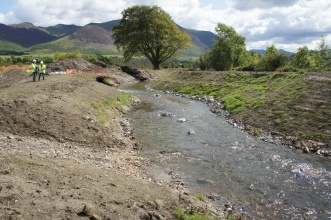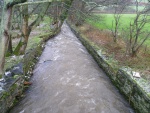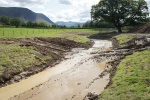Case study:Whit Beck River Restoration Project: Difference between revisions
No edit summary |
No edit summary |
||
| Line 48: | Line 48: | ||
{{Toggle content start}} | {{Toggle content start}} | ||
{{Case study subcatchment}} | {{Case study subcatchment}} | ||
{{Site}} | {{Site | ||
|Heavily modified water body=No | |||
|Protected species present=No | |||
|Invasive species present=No | |||
}} | |||
{{Project background | {{Project background | ||
|Reach length directly affected=0.3km increased to 1.2km | |Reach length directly affected=0.3km increased to 1.2km | ||
Revision as of 12:43, 12 November 2014
This case study is pending approval by a RiverWiki administrator.
Project overview
| Status | In progress |
|---|---|
| Project web site | |
| Themes | Environmental flows and water resources, Flood risk management, Habitat and biodiversity, Hydromorphology, Land use management - agriculture, Land use management - forestry |
| Country | England |
| Main contact forename | Ian |
| Main contact surname | Creighton |
| Main contact user ID | User:Ian Creighton |
| Contact organisation | West Cumbria Rivers Trust |
| Contact organisation web site | http://westcumbriariverstrust.org |
| Partner organisations | Environment Agency & Natural England |
| Parent multi-site project | |
| This is a parent project encompassing the following projects |
No |
Project summary
Whit Beck was an ambitious major pilot river restoration project undertaken by West Cumbria Rivers Trust on the behalf of the Environment Agency and Natural England summer 2014. This project was undertaken on Whit Beck, a fast flowing spate tributary of the River Cocker (River Derwent SSSI) in the English Lake District. A 350m section of heavily modified raised river channel was successfully diverted to natural self-sustainable diverse watercourse.
The benefits include:
• Restoration of natural river processes and associated features (WFD requirement)
• Increase in stream length (over 3 fold - 1205m) and channel area (4/5 fold)
• Provision of a wider range of habitats enabling fish to carry out the various stages of their life cycles within the new reach
• Significantly improvement in floodplain connectivity (flood storage)
• Increased in channel storage for gravels
• The provision of wildlife corridors (plants, insects and animals)
• Increased flood proofing for fish redds
• New deciduous woodlands and woodland strips
• Enhanced landscape
There were four parties with a vested interest in Whit Beck, two farmers, one tenant and an independent landowner. The scheme was entirely voluntary and all parties had to be on board for the project to get off the ground and succeed. It took two years of planning, investigations and engineering to complete. The total cost over the life of the project is in the vicinity of £700k. Construction was completed by the end of September 2014.
Monitoring surveys and results
Lessons learnt
Image gallery
|
Catchment and subcatchment
Site
Project background
Cost for project phases
Reasons for river restoration
Measures
MonitoringHydromorphological quality elements
Biological quality elements
Physico-chemical quality elements
Any other monitoring, e.g. social, economic
Monitoring documents
Additional documents and videos
Additional links and references
Supplementary InformationEdit Supplementary Information
| ||||||||||||||||||||||||||||||||||||||||||||||||||||||||||||||||||||||||||||||||||||||||||||||||||||||||||||||||||||||||||||||||||||||||||||||||||||||||||||||||||||||||




